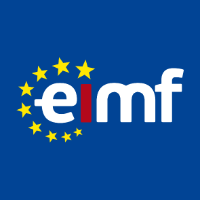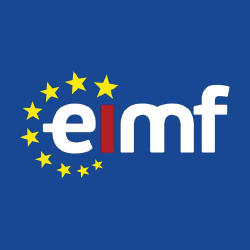
Internal Audit Quality Assessment
- Λογιστικά/ Έλεγχος/ Φορολογικά - Ποιότητα και Σχετικά Πρότυπα
ΠΕΡΙΓΡΑΦΗ
Course Overview
Internal Audit is one of the fundamental check and balances for sound Corporate Governance. Additionally, it bridges the gap between the Board of Directors and Management and assesses the internal environment as well as the efficiency and effectiveness of the Internal Control Systems and operations. Adherence to the International Standards for the Professional Practice of Internal Auditing brings about improved Corporate Governance, transparency and public image, thereby boosting stakeholders’ confidence.
The internal auditors need to assess the activity’s conformance with the International Standards for the Professional Practice of Internal Auditing and its effectiveness in providing assurance or consulting services to the Organization’s board of directors, senior executives, and other interested parties.
The Quality Assessment of the Internal Audit Activity is a critical process which is provided by the International Standards for the Professional Practice of Internal Auditing, while consisting of the best practice for all successful Internal Audit Units. The International Institute of Internal Auditors (The IIA) requires that the chief audit executive should develop and maintain a Quality Assurance and Improvement Programme (QAIP) that covers all aspects of the internal audit activity.
ΣΚΟΠΟΣ ΣΕΜΙΝΑΡΙΟΥ
The programme is designed to:
- Enable an evaluation of the internal audit activity’s conformance with the Definition of Internal Auditing and the Standards, as well as evaluate whether internal auditors apply the Code of Ethics.
- Assess the efficiency and effectiveness of the Internal Audit activity and identify opportunities for improvements. The Internal Audit’ function Quality Assurance and Improvement programme must include both internal and external assessments, and the main cause of a Quality program comes from asking certain, questions:
- Can Auditors add more value to Senior Management and the Audit Committee?
- Is maximum value received for the resources expended?
- Does Internal Audit meet International Professional Standards?
- Are Auditors aligned with the Organization’s strategy?
- Can audits be done better and enhance their image, credibility and influence?
Through this programme participants will attain the knowhow to assist in complying with the International Standards while executing their audits, to realize the importance and benefits of the Quality Assurance and Improvement Programme and finally to determine their level of readiness for an External Quality Assessment Review. Specifically, participants will:
- Attain knowledge about the Professional Practices Framework.
- Understand the impact of the Quality Assurance Standards and the mandatory External Assessment requirements.
- Discover state-of-the-art quality assessment techniques and processes.
- Identify best practices and key benchmarking criteria that separate top performing internal audit activities from the rest of the pack.
- Develop or enhance your department’s internal quality assessment program.
- Prepare your department for a future external assessment.
- Explore the new Self-Assessment with Independent Validation process.
ΣΕ ΠΟΙΟΥΣ ΑΠΕΥΘΥΝΕΤΑΙ
- Chief Audit Executives
- Internal Audit Units personnel (inspectors, internal auditors)
- Regulators
- External auditors
- Board/Audit Committee members
- Compliance Heads and officers
ΠΕΡΙΣΣΟΤΕΡΕΣ ΠΛΗΡΟΦΟΡΙΕΣ
Training Outline
- Internal Audit Definition
- International Standards for the Professional Practice of Internal Auditing
- How to apply the Standards for the Professional Practice of Internal Auditing in practice
- Code of Ethics (Integrity, Objectivity, Confidentiality, Competency)
- Mandatory requirements for External Quality Assessment
- Quality Assessment – tools and references
- Internal assessment programme: overview and details
- The organization of the external Quality Assessment (setting up the assessor’s team, preparatory activities, correspondence with audit clients, study of the Unit’s history)
- The interviews with the audit’s clients
- The Assessment of Internal Audit’s organization
- The Assessment of Internal Audit’s personnel
- The Assessment of the audit plans (Linked with corporate objectives, Risk Based Audit)
- The conformance of Internal Audit with the International Standards
- The Quality Assessment Report (Executive Summary, findings, Recommendations, Management’s Response – Action Plan)
- Final Opinion for the Internal Audit Unit
- Measurement Criteria for the Internal Audit Activity
- Best Practices for the Internal Audit Units
- The Validator’s profile (knowledge, Independence)
- Tools for Quality Assessment
- Analysis of the official Quality Assessment Manual of the Institute of Internal Auditors (Internal Audit Governance, Internal Audit Staff, Internal Audit Management, Internal Audit Process)
- Analysis and discussion of real Internal & External Quality Assurance Reports
Industry Expert | Konstantinos Triantafyllidis
Former President of the Greek Institute of Internal Auditors (IIA Greece) for the period 2003-2008, and past member of the Audit Committee of the Greek Ministry of Economics and Finance. Mr. Triantafyllidis is a graduate of the Athens Economic University in Economic Science and holds an MBA in Banking. He is currently an Internal Audit consultant while he has over 30 years’ experience in external auditing, internal auditing in the banking sector and as Internal Audit Manager in various subsidiaries of Greek Banking Groups.
Additionally he has obtained significant further training and practice in Internal Control Systems, Internal Audit and Risk Management and global best practices in auditing. He is a Certified Internal Auditor (CIA), a Certified Financial Services Auditor (CFSA) and possesses the Certification in Control Self-Assessment (CCSA). Furthermore he is a Certified Fraud Examiner (CFE) and Accredited Valuator of the Audit Activity by the International Institute of Internal Auditors (The IIA) a field where he is very actively involved. He is member of the External Quality Evaluators of Internal Audit Units of Eurozone’s Central Banks.
Training Style
The programme is designed to provide knowledge and improve participants’ skills through short lectures, case studies, practical examples, real-time simulations.
Participants will also benefit from feedback at the end of the programme and will use the knowledge gained in their work. Most of the training time will be invested in real External Quality Assessment Reports that will help participants understand how to apply the International Standards for the Professional Practice of Internal Auditing, how to execute their ongoing and periodic Internal Assessment and how to prepare for the External Quality Assessment.
CPD Recognition
This programme may be approved for up to 7 CPD units in Internal Audit. Eligibility criteria and CPD Units are verified directly by your association, regulator or other bodies which you hold membership.
Πληροφορίες Εκπαιδευτή
Αναλυτικό Κόστος Σεμιναρίου
- € 240.00
- € 0.00
- € 45.60
- € 240.00
- € 285.60
ΠΡΟΓΡΑΜΜΑ ΣΕΜΙΝΑΡΙΟΥ
Τρίτη - 02 Μαΐου 2023
Ώρα
15:00 - 18:45
ΕΚΠΑΙΔΕΥΤΗΣ:
Κωνσταντίνος ΤριανταφυλλίδηςΤοποθεσία:
OnLine Virtual Classroom
Τετάρτη - 03 Μαΐου 2023
Ώρα
15:00 - 18:45
ΕΚΠΑΙΔΕΥΤΗΣ:
Κωνσταντίνος ΤριανταφυλλίδηςΤοποθεσία:
OnLine Virtual Classroom
 Ελληνικά
Ελληνικά  English
English



 Αγγλικά
Αγγλικά
 7 ώρες
(
2 μέρες
)
7 ώρες
(
2 μέρες
)

































